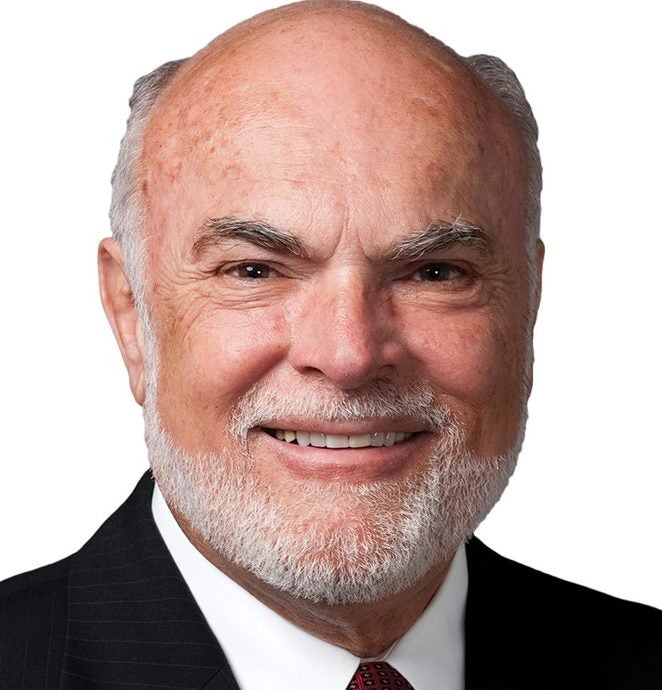MY FIVE CENTS: Red light cameras could become relics of the past
Published 5:14 pm Sunday, March 3, 2019

- District 3 State Senator Robert Nichols
By State Senator Robert Nichols
Senate Finance workgroups were announced this week. I am grateful to Senator Jane Nelson for naming me Chair for the Article 6,7, and 8 workgroup. Over the next few weeks, we will go through the budgets of agencies such as the Texas Agricultural Commission, Texas Railroad Commission, Texas Department of Motor Vehicles and Texas Medical Board. This is the time we are able to make suggestions for additional items the agencies have requested to be added to the state’s budget or to remove items.
Here are five things happening at your Capitol this week:
- IGR and Transportation Committees
This week, the Senate Transportation Committee held its first hearing. As Chair of the committee, I shared my goals for this session in working towards ensuring the State is efficient and effective in moving people and goods safely. We also heard updates from the Texas Department of Transportation, the Texas Department of Motor Vehicles, and the Texas Department of Public Safety. I look forward to working with the other members on the committee on ensuring a safe and reliable transportation system for the State.
The Senate Intergovernmental Relations Committee, on which I serve, also held its first hearing this week. We heard updates from the General Land Office and the Texas Department of Housing and Community Affairs and Texas State Affordable Housing Corporation.
- Red Light Cameras
House Bill 1631 has been filed and would outlaw all red light cameras in the state if it passes. Red light cameras are set so that if a vehicle entering an intersection after the light has turned red, a photograph is taken and then a $75 ticket is sent to the owner of the vehicle. Critics of these cameras believe it violates the U.S. Constitution and can cause accidents as people abruptly stop to prevent running through an intersection. These types of bills have been passed out of the Senate many times in the previous session, but have never made it through the House. With 102 co-authors on this bill, which is more authors than any other piece of legislation has at this point in the session, this bill could have a good chance of finally passing.
- Teacher Salaries
This week the Senate Finance Committee, on which I serve, passed Senate Bill 3 unanimously out of committee. This bill will give all classroom teachers in Texas a $5000 raise above their 2018-2019 salary. To be classified as a classroom teacher you must provide 4 hours or more of classroom instruction per day. The committee amended the original bill to ensure that the state would cover the teacher’s healthcare insurance costs related to the rise. This bill will now go to the Senate floor for consideration in the next week.
- Daylight Savings
Whether we should turn back our clocks or spring forward has long been an item of discussion during legislative sessions. Once again, bills have been filed this session to do away with daylight savings and instead establish a standard time year-round. Proponents of doing away with the time change state that it is an antiquated practice that dates back to World War I. Other reasons provided for doing away with it are the loss of sleep caused by the lost hour causes physical and emotional stress on individuals, and school children are forced to wait at the bus stop for school when it is still dark.
Those in favor of daylight savings argue that doing away with it would mean it would get darker earlier in the evening, causing people to use more power than they have in the past. I will continue to keep you posted as these bills go through the legislative process.
- Alabama-Coushatta Day
This week I had the pleasure of welcoming the Alabama-Coushatta Tribe to Austin for their legislative day at the State Capitol. The Tribe, which is a Federally recognized tribe, are descendants of both the historic Muscogee and numerous tribes of the Creek Confederacy. At the suggestion of Sam Houston, in 1853, the Tribe Chiefs held a meeting at the home of Samuel Rowe to express their interest in settling on land. In February of 1854, the Texas Legislature passed the “Act for Relief of the Alabama Indians.” This act along with a donation of land provides the Tribe with the majority of the acreage on which they reside today in Polk County. I am honored to represent the Tribe in the Senate and look forward to continuing to work for and with them.
Robert Nichols is the Republican Senator for the 3rd District in the Texas Senate.





